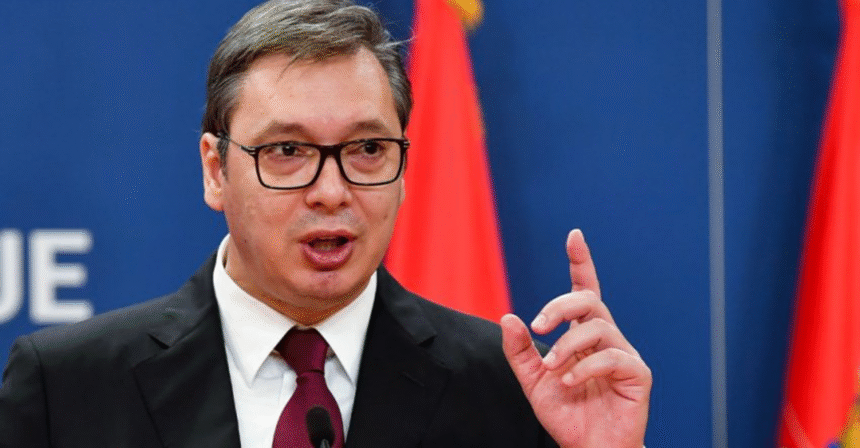Serbian President Aleksandar Vučić has repeatedly warned that the “time of accountability” is approaching, sparking speculation about who may face consequences within the government and broader public sector.
During a walk in Borča with citizens opposed to ongoing blockades, Vučić referred to the departure of SAJ commander Spasoje Vulević and stressed that he will hold certain people accountable for inaction, cowardice, or misuse of their positions.
Analysts suggest that Vučić’s warnings target three main groups:
- Students and protesting citizens, whom the government accuses of participating in the so-called “colored revolution”.
- Disloyal officials within the police, prosecution, and judiciary, who allegedly fail to follow orders from the central government.
- Privileged but underperforming members within his own ranks, described as those who enjoy the benefits of office without actively contributing to the government’s defense against public unrest.
Political analyst Ognjen Gogić notes that when Vučić announces the “time of accountability,” it often signals a predicted crackdown on individuals perceived as obstacles to the government, shifting blame from the top of the party to lower-level officials.
Marko Vujić, a lecturer at the Faculty of Political Sciences, adds that Vučić’s warnings also serve to mobilize loyal officials in visible positions of power, as protests have highlighted a lack of government presence on the streets.
Experts caution, however, that historical attempts to enforce loyalty through threats of internal party trials have rarely yielded long-term results, especially in a polarized society like Serbia today.
Vučić himself emphasized that accountability will first affect those “within reach”—officials whose actions (or inaction) are well-documented and potentially compromising.







